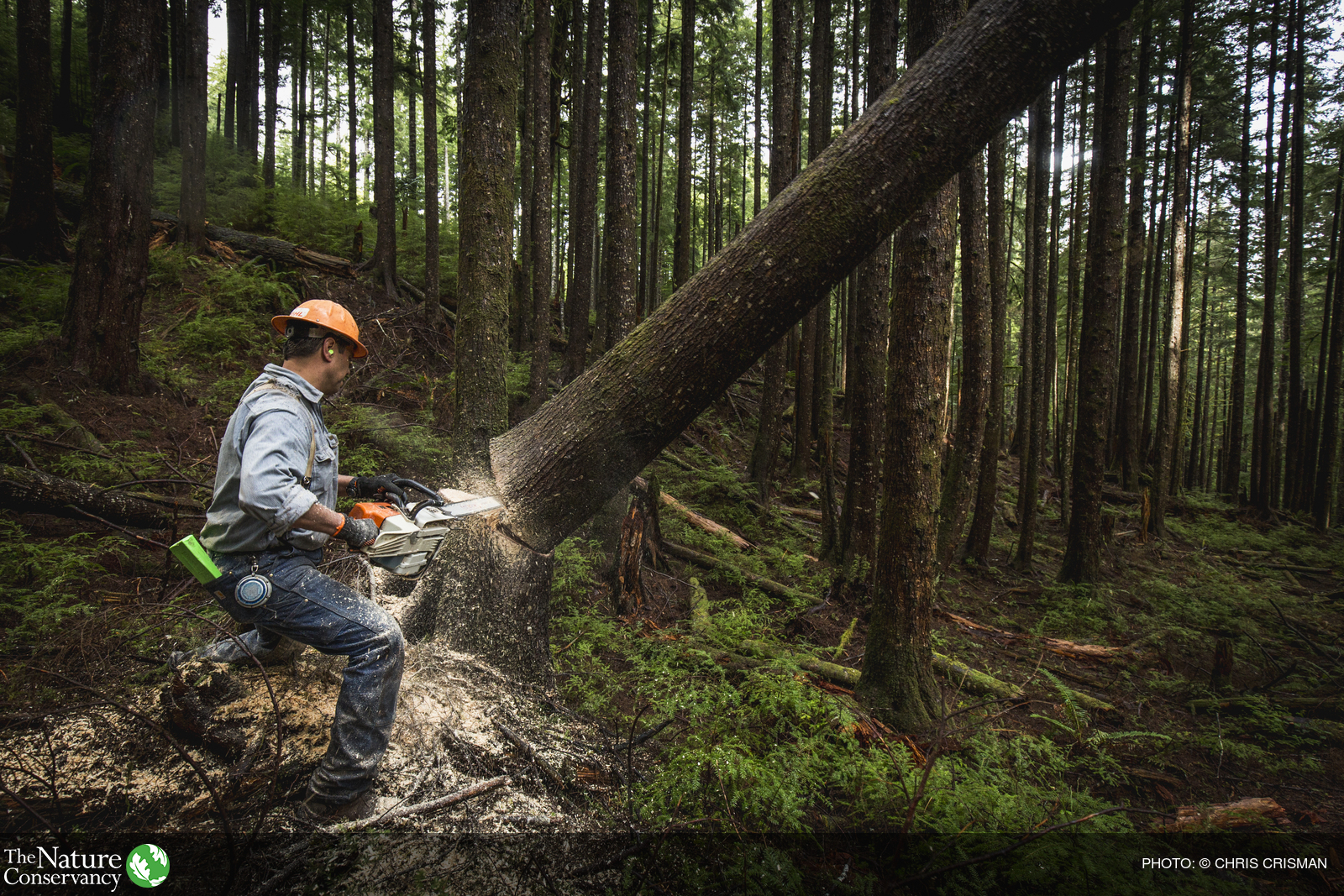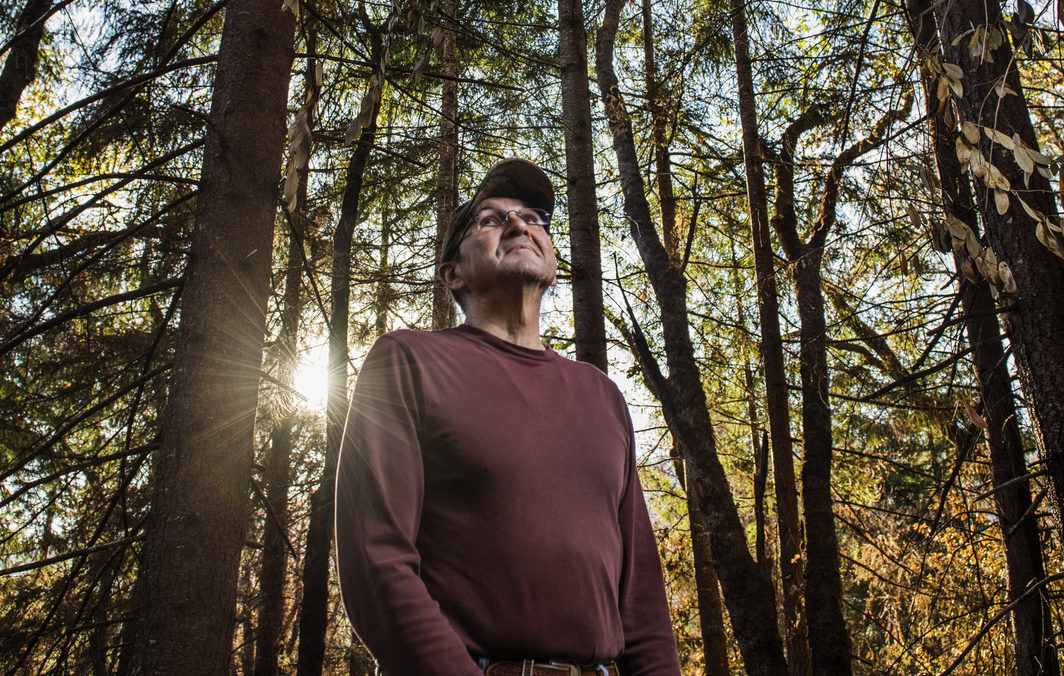
Read more
Related articles for further reading
Many of the world’s natural forests provide wood products critical to people’s lives and livelihoods.
Halting all logging in natural production forests would achieve maximum carbon sequestration, but an end to logging is not realistic or necessary. Improving forest management practices will allow some natural forests that have been degraded in the past to store more carbon while maintaining wood production over the long term. Logging should be halted in some sensitive places, with the lost wood production made up by new wood production in some reforestation lands. Expansion of logging into new areas of primary forest should be avoided.
Extending harvest cycles, for example, allows trees to grow larger before they’re felled, increasing the average carbon stock across a working forest. Reduce-impact logging practices like cable winching can avoid damage to trees not harvested. And competing vegetation, such as vines, can be thinned to allow trees to grow faster and bigger. Implementing such techniques will allow our working forests to sequester more carbon.

One of the major challenges to improving forest management techniques is the instability of land tenure. Loggers without long-term rights to the land aren’t inclined to invest in sustainable forest management. Improving land tenure is particularly important for forests managed by communities with traditional use rights.
In addition, timber plantations are found across the globe, accounting for seven percent of the world’s total forest area. Plantations are typically managed on shortened harvest rotation lengths that optimize investment returns rather than longer rotations that would maximize yield for optimal broader economic and environmental benefits. Extending harvest rotation cycles would allow trees to absorb more carbon from the atmosphere while also increasing timber yields in tropical, subtropical, temperate and boreal forests.
Unlike reforestation and avoided deforestation, improving natural forest management doesn’t require changing land use. Where stable land tenure exists, forest owners can improve forest health and carbon storage while also making their businesses more efficient and more sustainable.